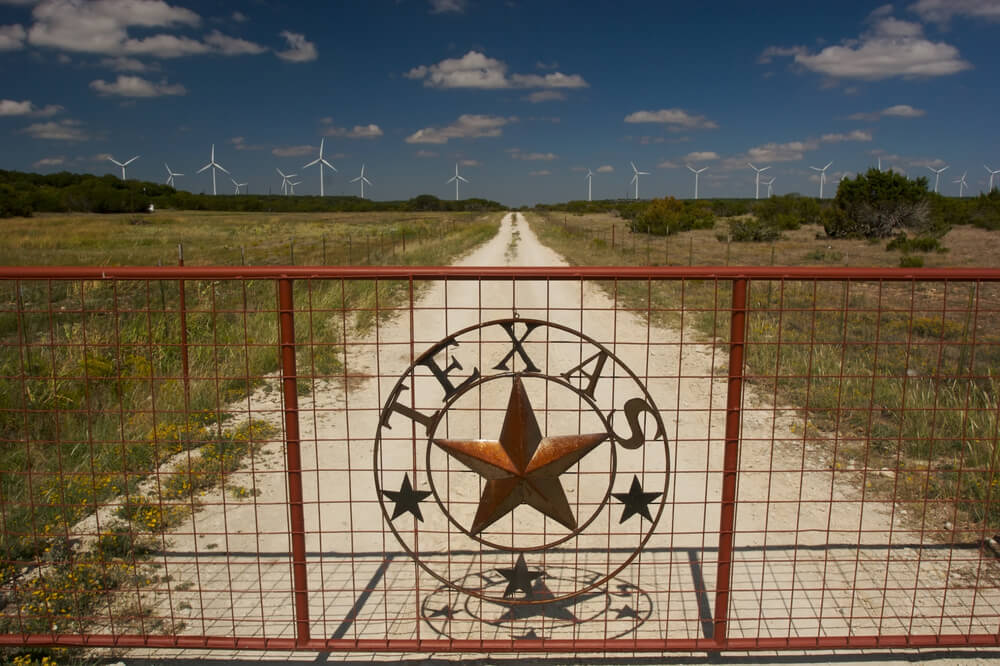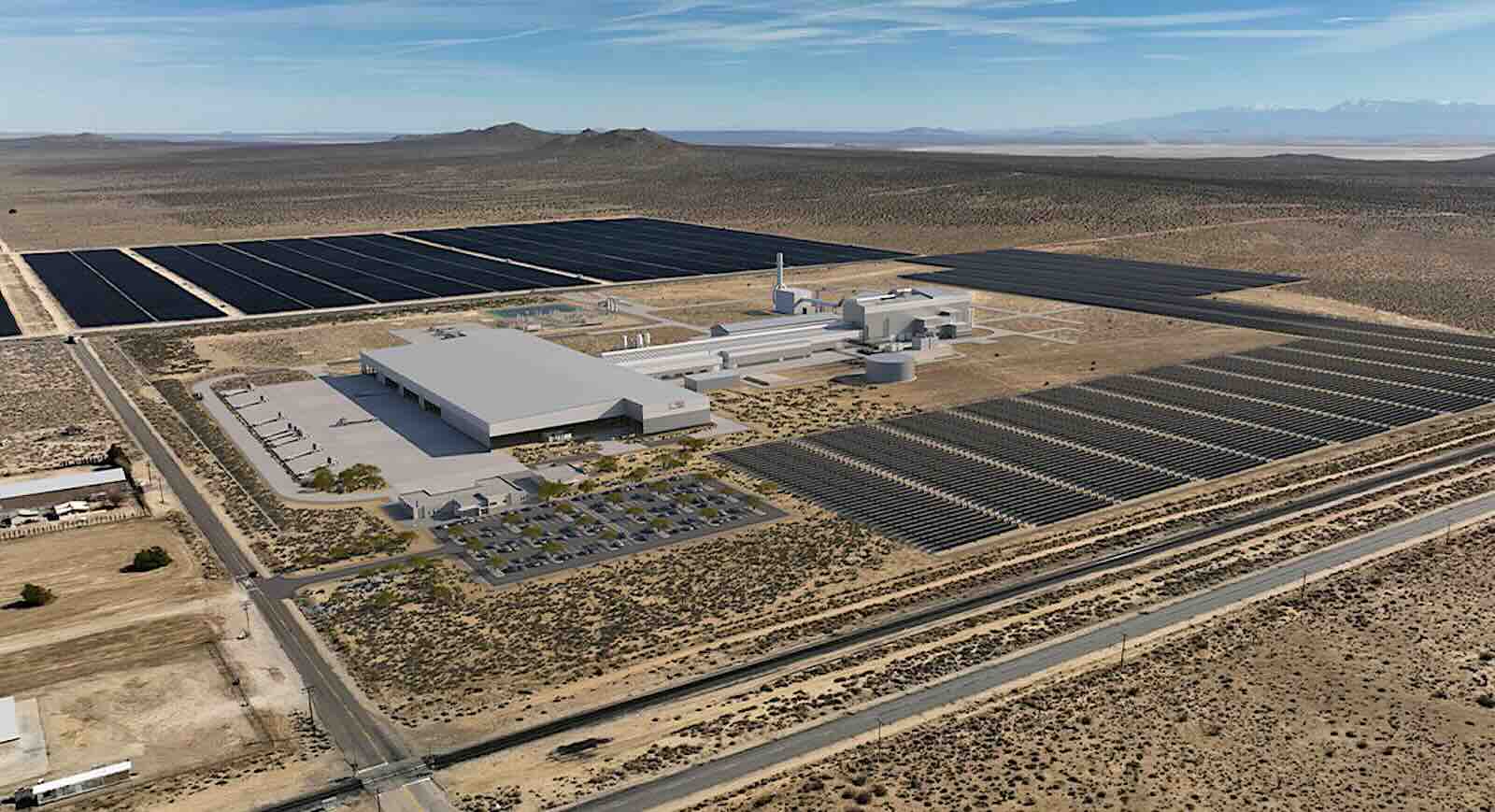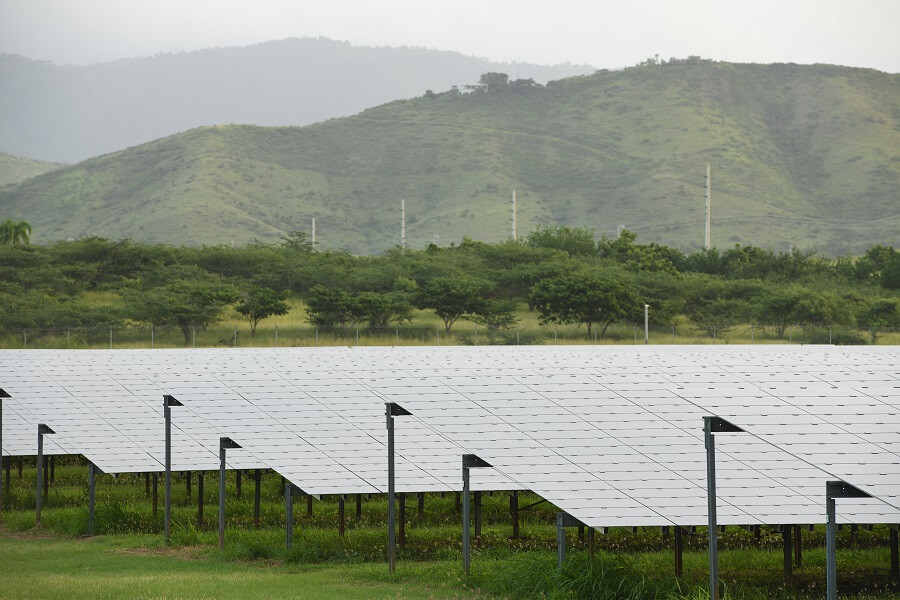Austin, TX – Everything’s bigger in Texas. That goes for the state’s role in the transition to a greener and cleaner economy.
Texas already leads the U.S. in wind power. Within a few months, the Lone Star state will surpass California in utility-scale solar capacity. And Texas is padding its lead, with more solar and wind capacity in development than any other state.
An oil-pumping, Republican-led state seizing the lead in the U.S. clean energy race represents a decisive shift in the narrative. Texas’ green gold poses a quandary for conservative leaders in the state and across the country who have ratcheted up their rhetoric against climate action and lined up against federal clean-energy policies.
“Texas is as well suited or better suited than any place in the world to lead the energy transition,” Austin-based energy consultant Doug Lewin told ImpactAlpha at the University of Texas’ Global Sustainability Leadership Institute. “Markets are moving. The technology is progressing. We’ve got great universities. All the pieces are here.”
“If,” he added, “we have the will to do this.”
Last week, the GOP-led state legislature introduced a slate of bills that would hamper development of renewable energy in the state while boosting new fossil fuel plants. The bills come as a response to the 2021 winter storms that knocked out large swaths of the grid and killed hundreds (the state’s GOP leaders blamed the state’s reliance on renewables for the outages, a myth that has since been dispelled).
Texas can choose to lead the transition “or choose to be left behind,” Lewin tweeted earlier this month. “Much of the economic future of our state rides on that choice.”
Climate tech
Texas’ climate leadership goes beyond energy. Climate tech startup Solugen, a producer of zero-carbon chemicals, for example, opened its headquarters in Houston, where it built its first “bioforge” production plant to turn feedstocks such as sugars, air, and carbon dioxide into alternatives to conventional chemicals. Last year the company raised $200 million, pushing its valuation above $2 billion.
Texas has an abundance of sun and wind, but it also has an abundance of energy-industry talent, university R&D, and purchasing power needed to scale up climate technologies quickly. Access to oil and gas talent and large corporate customers “is what explains the speed of Solugen,” founder Gaurab Chakrabarti told ImpactAlpha.
Other climate-tech startups calling Texas home include Quidnet Energy (pumped storage), Icon (climate-resilient housing) and Fervo (geothermal).
And then there’s Tesla, one the world’s largest climate tech companies, which moved its corporate headquarters to the state in 2020. Giga Texas outside Austin, where Tesla will produce Models Ys, Cyber Trucks and Tesla Semis, is the country’s second biggest factory by size and second-largest building by volume in the world.
Texas is also setting the pace on battery storage, EV fleets, heat pump deployment, and even virtual power plants. Within about four years, electric vehicles in the state will store as much energy as the state’s energy grid.
Even more climate tech startups are digging in. A flurry of geothermal startups, led by oil and gas industry veterans, have launched in Texas in recent years. Houston-based Fervo raised $138 million last year to adapt innovations pioneered in oil and gas extraction, including horizontal drilling and fiber optic sensing, to turn underground reservoirs of hot rock into clean sources of energy.
Austin-based solar developer Industrial Sun raised $90 million last month. Icon, another Austin startup, last year raised $185 million with a valuation near $2 billion for its 3D-printed climate resilient, energy-efficient homes. Houston-based Quidnet Energy, which stores energy in unused oil and gas wells by pumping water under pressure, recently received $10 million from the federal ARPA-E Program to commercialize its product.
Local battery storage developers, like Jupiter Power, as well as outside firms, including Spearmint Energy and Habitat Energy, are piling into Texas’ growing battery storage market. Late last year, Blackrock acquired Juniper from EnCap Investments.
One obstacle to recruiting talent to Texas’ booming green economy: the state’s social policies, like its near-total abortion ban, that already is making it difficult to recruit employees.
After the state banned abortion in 2021, Solugen’s Chakrabarti threatened to open its next R&D facility outside the state. “We’ve come to the conclusion after talking to lots of candidates that they want to join Solugen but they don’t feel comfortable coming to Texas,” he told Axios.
Jobs, jobs, jobs
Simple economics are driving the expansion of green energy. Texas’s competitive energy market is unique among U.S. states and has been credited with the surge in renewables development. Texas’s competitive energy market means that generators seeking the cheapest power have largely deployed renewables as the costs of wind, solar and storage have fallen.
Over the last 12 years, renewables in Texas have saved customers nearly $28 billion. In 2022 alone, wind and solar reduced wholesale energy costs in Texas by nearly $1 billion a month, according to Austin energy research group IdeaSmiths. The firm estimates savings in healthcare and other environmentally related costs due to a drop in emission at between $10.2 billion and $76.4 billion.
Renewables are a large and growing source of tax revenue for local Texas communities. Just the current fleet of utility-scale wind, solar and energy storage could generate $7.2 and $8.8 billion in new tax revenue, according to IdeaSmiths.
Texas is expected to be a big winner with passage of the Inflation Reduction Act, and could see some $66 billion in investment by 2030 to expand wind and solar, advanced batteries and other sources of clean electricity.
More than 239,000 Texans are employed in renewable energy, energy efficiency, storage and grid modernization and clean fuels (second to California at 505,000). IRA investments could add another 116,000 by 2030, second again to California, which could add 140,000.
And then there’s Texas’ claim on new energy spending as the world moves to net zero. The World Energy Outlooks estimates trillions in new energy spending as the world transitions to lower-emission sources.
“We’re an energy state,” says Lewin. “Instead of having fear, we should be going, ‘Look at this opportunity.’” Instead, he says, “People are trying to hold it back and fight it.”
Choices ahead
Texas passed a law in 2021 prohibiting state and local governments from contracting with firms like BlackRock, Credit Suisse and UBS that adhere to so-called environmental, social and governance, or ESG, principles or policies. And last year, Texas Republican Comptroller Glenn Hagar barred 10 firms and almost 350 ESG funds from doing business in Texas, stating they “boycott energy companies.” And earlier this month, Texas legislators introduced a bill prohibiting companies operating in the state from implementing ESG shareholder proposals.
One analysis of the ESG bans found that limiting the pool of banks for government contracts is likely to cost the state up to half a billion dollars in additional bond underwriting costs.
New GOP-led bills would add restrictions and fees to clean energy development and mandate the development of new natural gas plants, in a roll-back of the state’s competitive electricity market.
Lawmakers behind the legislation have been open about their intent. Federal policy “certainly incents more and more solar, more and more wind,” said Republican Sen. Charles Schwertner, one of the bill’s sponsors. “Over time, we’ll turn the dial back.”
One of Schwertner’s bills, for example, would cap the amount of new renewable megawatts allowed to be built based on megawatts of natural gas generation in the development pipeline, curbing the ability of renewables to outpace the fossil fuel in the state.
The bills, supported by Lt. Gov. Dan Patrick, would drive up customers’ electricity bills, “while wasting billions on 1950s-style solutions for 21st-century problems,” columnist Chris Tomlinson wrote in the Houston Chronicle. “Our widely admired free market system would be replaced with the big-government structure we abandoned in 1999.”
21st-century solutions, on the other hand, are already being built in Texas. “These opportunities appear right here in front of us,” says Lewin. “In Texas, an energy state, it’s our game to lose.”












